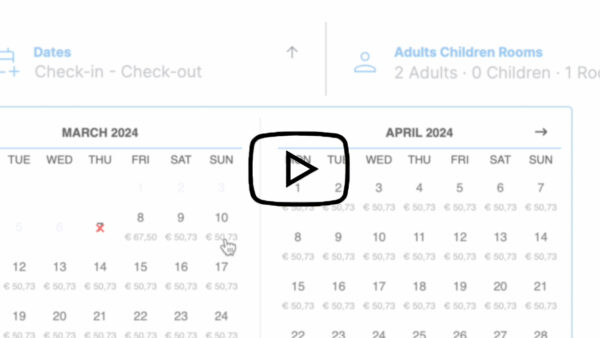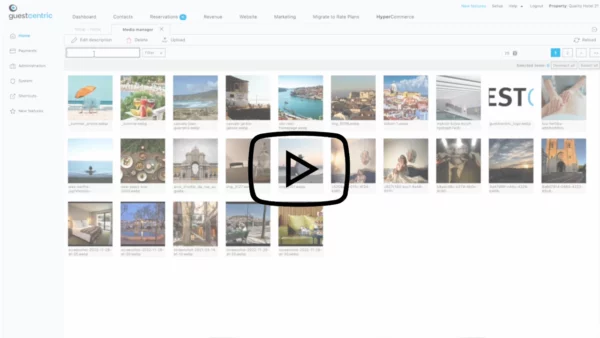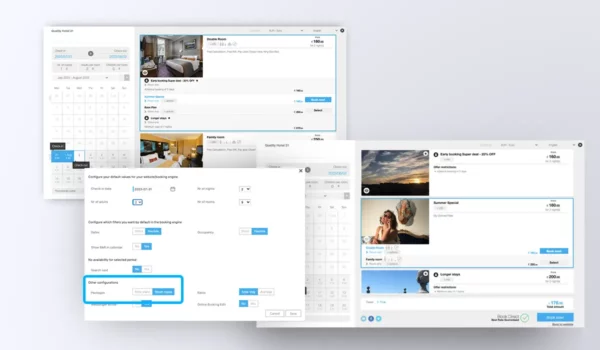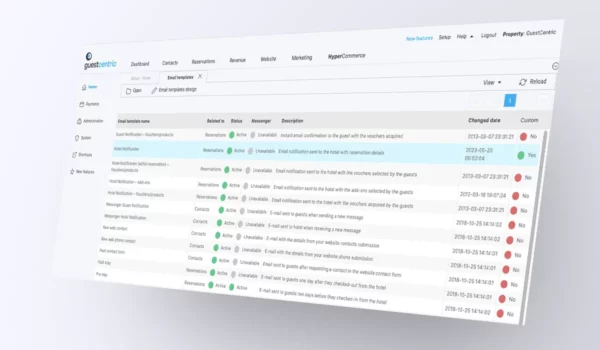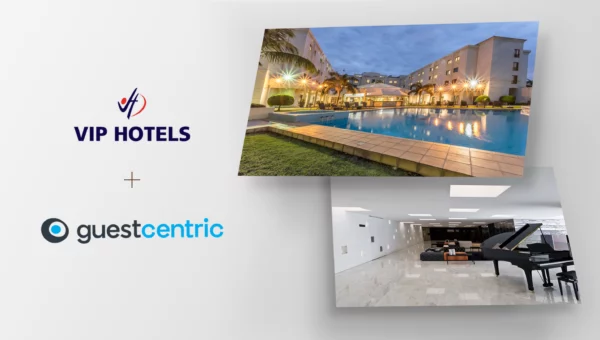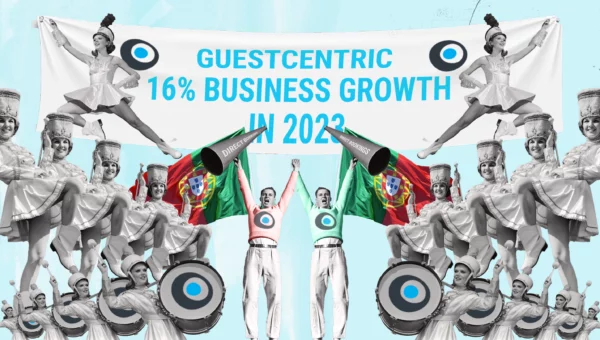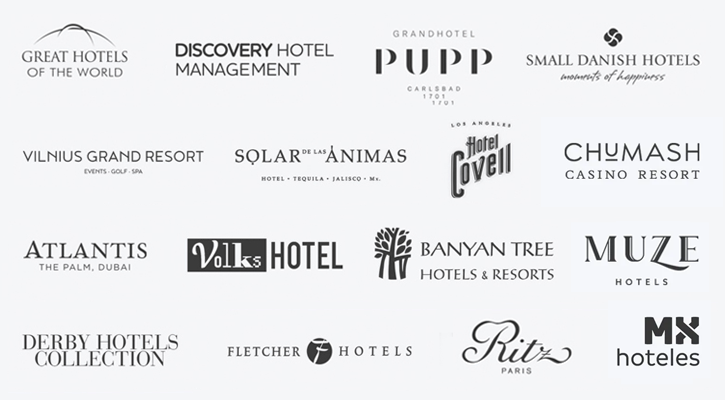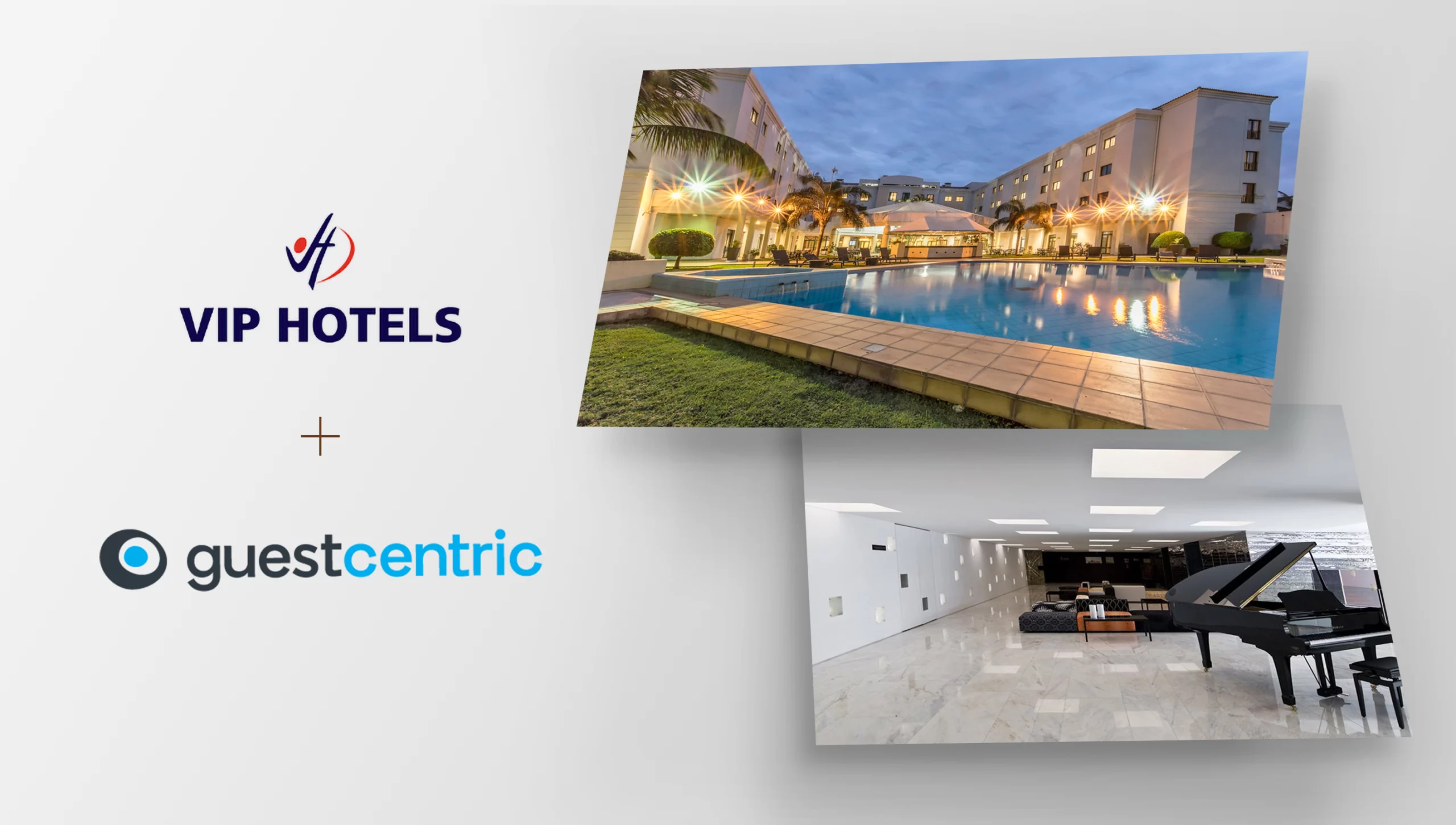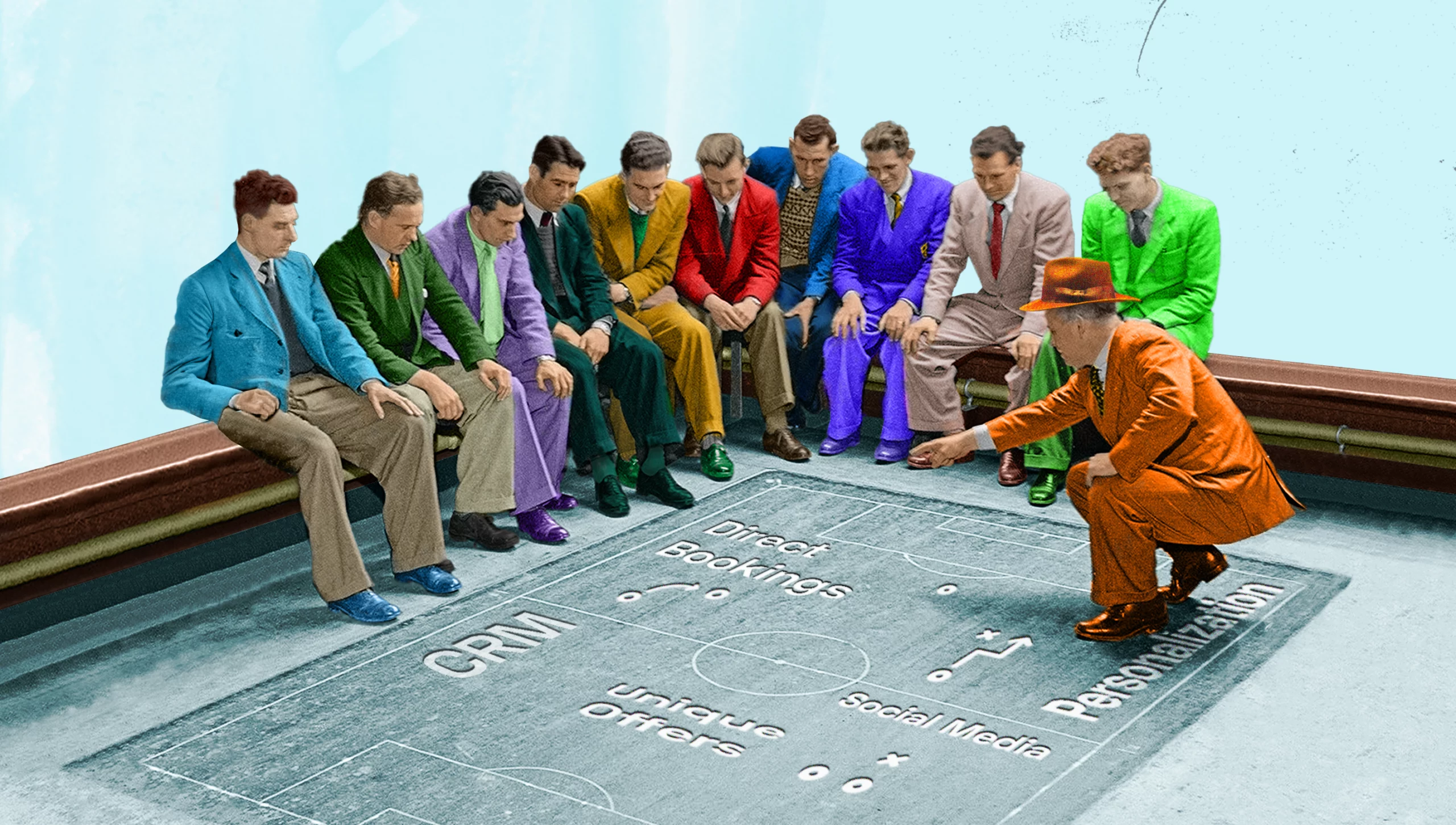How Hotels can Digitally Optimize the Guest Experience
Reading Time: 9 minutesPent-up travel demand is here, bringing with it an array of positive market signals. With cancellations back to normal levels and occupancy levels expected to exceed 2019 levels by the 2nd half of 2022, there are many reasons for hotels to be optimistic this year.
But as the appetite for revenge travel rapidly increases and consumers grow more hungry for unrestricted travel experiences, it’s vital that hotels respond to this pent-up demand. Apart from re-introducing pre-pandemic amenities at property level, such as the free breakfast buffet for example, it’s important hotels have the necessary digital marketing strategies in place to capture the demand and capitalize on it.
In this article, we explore how your hotel can respond to pent-up travel demand and give guests the best experiences during the pre-book, pre-stay, and post-stay stages of their journeys.
But first, how pent-up is the Demand?
After two years of changing restrictions, guests are eager to jet-set around the world, enjoying all the thrilling and enriching experiences that travel has to offer.
Expedia is calling 2022 the year of the GOAT, or the “Greatest Of All Trips.” In a survey of 12,000 travellers in 12 countries, the company found that 65% of respondents are planning to “go big” on their next trip, according to a company representative. As a result, it named the desire for exciting and extravagant trips “the biggest travel trend” of the year.
Some 70% of leisure travelers in major countries (such as the US, the UK, Canada, Japan and Spain) plan to spend more on travel in 2022 than they have in the past five years, according to a November joint report by the World Travel & Tourism Council and travel website Trip.com.
Guests are clearly hungry for experiences in 2022, but how do they know which experiences will fulfill their desires before booking? How can hotels ensure that guests do not cancel in the run up to check-in date?
Research for the Best Guest Experiences starts Online
With the wealth of information online, guests can now be more critical and discerning when planning their trips and accommodation. Nielsen research found that travelers spent an average of 53 days visiting 28 different websites over a period of 76 online sessions, with more than 50% of travelers checking social media for travel tips. HuffPost reports that over 95% of leisure travelers read at least seven reviews before booking their holidays.
Equally so, after two years of business disruptions, competition to digitally attract and retain these discerning travelers is fiercer than ever. It’s important that your hotel has the technological infrastructure and digital marketing strategies in place to stand out from the competition.
How Hotels can Digitally Optimize the Guest Experience – from Pre-Booking to Post-Stay
The demand for optimal digital experiences simply cannot be ignored, particularly after the past two years. But how can your hotel digitally optimize the guest experience from pre-booking to post-stay, and keep guests coming back for more?
Breaking down the three main stages of the guest’s journey: 1. Pre-Booking, 2. Pre-Stay, and 3.Post-Stay, below are my top tips on how you can digitally optimize the guest’s experience:
Pre-Booking Guest Experience – It Starts with your Hotel Website
Although online travel searchers typically use OTAs to browse and price-shop through accommodation options, research by Fuel & Flip shows that 87% will generally visit a hotel’s website before booking a hotel stay. Your website is essentially your hotel’s digital storefront, giving guests the clearest glimpse of what your hotel has to offer prior to booking.
So, now that the guest has entered your website, you need to keep them hooked and inspired to book. Thus, we start off with 6 crucial tips to ensure guests can truly experience your hotel via your website and book.
1. Visually Make Guests Dream about the Experiences your Hotel has to Offer
Your hotel website is the best place for guests to explore what your hotel has to offer. Therefore, it’s critical that your hotel website visually tells guests why they should book and visit your property.
The same study by Fuel shows that images are the number one decision-making factor when it comes to booking a hotel, so it’s important your hotel has plenty of good quality images and, if possible, videos that enable guests to experience your hotel prior to booking.
You may also want to consider delivering virtual tours to guests prior to them booking, so that they can better understand the different room types and why some are more expensive than others. This will better enable a guest to make a more informed buying decision.
2. Publish Customer Stories and Reviews
Customers buy from other customers, and guest reviews about your hotel provide reliable and unbiased insights about what future guests can expect from the hotel. It’s no surprise that a survey by Podium found that 93% of customers said reviews influenced their purchase decisions. Another survey by TripAdvisor found that 77% of holidaymakers usually or always look at reviews before booking a hotel.
In addition to publishing customer reviews on your website, you could be even more creative and get guests involved in visually telling your hotel’s story. One independent collection that is doing an excellent job of this is Memmo Hotels, whose website has a page dedicated to showcasing authentic customer experiences using high quality videos.
3. Communicate Flexibility
The pandemic certainly increased the demand for flexibility. Therefore, it’s paramount that you reassure guests that your hotel is flexible to accommodate their needs.
Do you have a free cancellation policy under a specified timeframe? Make it visible on your website. Do you offer free late check-out during low seasons or at a cost determined with the guest? Clearly communicate this on your website and during the booking process.
4. Make it Easy for Guests to find Crucial Information about your Hotel
The ultimate reason people visit your website is to find information about your hotel. If your hotel website is cluttered or messily designed that visitors are unable to get what they want quickly, the chances of them bouncing are very high.
Therefore, you should ensure your hotel’s address, contact details, and other crucial information is easy to access on your website. By the same token, you should also showcase any local attractions and amenities your guests can enjoy during their stay. You may also want to consider using ChatBots as another tool to guide guests about what your hotel has to offer.
5. Shine a Spotlight on the Perks Guests can expect from your Hotel
Research by Skift shows that 44% of global travelers consider special offers an important decision-making factor prior to booking. If you want to convince guests you can deliver the experiences they seek, it is absolutely crucial that you shout about your special offers across all areas of your hotel website.
Does your property have the most famous restaurant in town? Do you offer a discount on dining for guests who book directly? Is your hotel spa top-notch? Do you offer a welcome drink to guests or a gift in each room? If you answered yes to any of the above, shout about these perks on your website.
Be sure to highlight your special offers across all areas of your hotel website: Home page scroll, special offers teasers, and descriptions, and booking engine loading area.
6. Make it Easy for Guests to Book Direct
According to Guestcentric’s research of over 1,000 hotel websites within our portfolio, a whopping 97% of online visitors abandon a hotel website during the booking process. Thus, it’s crucial to ensure your hotel delivers a seamless booking experience.
As with your hotel website, your booking engine should stimulate shopping behavior. Special offers, promotions, and shopping activation/recovery alerts all create a sense of urgency and inspire visitors to book.
In the age of abundant options, if you don’t deliver an efficient booking process, most visitors will simply move to a competitor. Providing rates and availability in real-time (and on the same web page) is another really effective way to make the booking experience more efficient.
You should also reinforce why guests should book directly on your website. In addition to price, you should also showcase amenities or exclusive offers for guests who book directly on your hotel website.
Pre-Stay Guest Experience – Communication, Communication, Communication!
So you have the booking. But you still need to make sure your guest doesn’t cancel in the run up to the check-in date. Below are 4 tips to help you keep guests engaged prior to their stay at your hotel:
1. Make Guests look Forward to their Visit
Want to make guests excited about visiting your hotel? The pre-stay emails are your opportunity to give guests something to look forward to. This is especially true when expecting guests who have booked far in advance. Sending a confirmation email shortly after they book and contacting them a few days prior to their stay, will ensure your hotel stays top of mind until their arrival.
If you have a special service, offer, or activity, make sure you include this in the pre-stay email. Memmo Hotels, for example, let’s customers know about their live music and DJ sessions prior to the guest’s arrival. Whether you offer bike or boat tours, or perhaps have a partnership with some local businesses that can offer a real flavor of your destination, you should highlight this in the pre-stay emails.
It also doesn’t hurt to have social media sharing buttons at the bottom of your email templates, to get the guests talking about their trip on social media.
2. Keep Guests Informed and give them the option to Book Activities and Amenities in Advance
When communicating with guests, you should share any helpful hints and tips about what they can expect in your hotel and destination. Although you may have included your hotel’s address on the website, you should also include it in the pre-stay emails in case the guests need a reminder.
You can also send information about your hotel’s restaurant, Spa or other services the guest can enjoy during their stay. During peak seasons, be proactive and encourage guests to pre-book these services and not get stuck in the rush of multiple guests booking at the same time. The Miramonti Boutique Hotel in Italy actually sends out eBooks to their customers prior to the stay, full of information about hiking trails, shuttle services, or activities that the guest can book beforehand.
4. Be Proactive and Give Guests what they Want before they Ask for It
Guests appreciate hotels that go the extra mile to give them what they want, before asking for it. One way to do this is by keeping track of what your guests are saying on social media and respond accordingly. With Twitter, for example, you can do this if the guest has connected to your hotel page (either through a promotion or a simple follow) and you have visibility of their tweets. You can also track specific keywords, such as your hotel name and destination.
Imagine this scenario. You own a hotel in Miami, and have received a booking from someone who has unfortunately decided to fly a budget airline. Aching from limited legroom and disembarking to infernal August heat, he vents on Twitter: “Just landed in Miami! Get me to the resort already…” If you’ve been keeping track of guest tweets, you can shoot a reply: “We have a cold beer waiting for you!”
Not only will you have given the guest something special before they even asked for it, you will have also transformed a potentially negative experience into a positive one.
5. Show the Human Side of your Hotel
Although we live in the digital age, guests still appreciate the human touch of hospitality. Think about it, if you need to call a customer service department, would you rather speak to an automated recording or an actual human?
You should always show the human side of your hotel by adding personal touches. Instead of signing off with: “Reservations Team”, you can opt to have the Concierge or Front-Office Manager’s name in the email signature. Some independent hotel owners will even add their own names to the email signature. This step shows guests who they can count on to help should the need arise.
Post-Stay Guest Experience – Keep Guests coming back for more
Your connection to your guests shouldn’t stop once they have checked out of your hotel. Now that you have gathered information about your guests’ preferences and the experiences they pursued during their stay, you can use this data and their stories for future marketing campaigns.
Below are 2 final tips to not only attract more guests in the future, but also keep past guests coming back for more:
1. Target Past Guests with Special Offers tailored to their preferences
What information have you gathered about your guest when you communicated with them or during their visit? When is their birthday? What are they interested in doing during their stay? What did they like or did not like during their past stay? You should store this information to segment and create personalized offers that target past guests.
For example, if you know your guest’s birth date, you can send a special birthday offer one month before their birthday. Or if they indicated they would have loved to visit the spa the last time they stayed, follow up later with a spa specific package and details.
2. Encourage guests to share their experiences with future guests
Remember the reviews mentioned earlier? Well, now that you have come full circle. If you give guests a positive experience, you should encourage them to spread the word to future guests. This can be done through testimonials, publishing guest stories on your website, or via social media.
Research by Forrester shows that 90% of travelers post about positive experiences, and 86% are inspired by user generated posts. You could also encourage guests to participate in a social media competition where they share photos and tag your hotel, thus raising more awareness about your hotel. In addition, you can get testimonials by sending a feedback survey to guests after their stay.
Conclusion
With today’s discerning audience, it’s critical that Hoteliers are prepared to deliver the best experience from the onset of the traveler’s journey, which starts at the hotel website. Travelers will continue to value information that efficiently guides their purchasing decisions, transparent communication in the run-up to booking, and personalized offers after check-out.
In terms of the pre-stay, one positive trend that has grown over the past two years is that more guests are reaching out to hotels directly. Hotels must continue direct conversations with guests, becoming a partner in their journey. It’s not enough to simply accept their credit card and be done with it, hotels need to deliver the full experience in order to keep customers happy.
And if you follow these best practices during the pre-book and pre-stay stages, you will ultimately have guests you can market to post-stay. These guests will also be more likely to shout about their positive experiences to future guests down the line.
*Published with Permission from Hotel Executive


